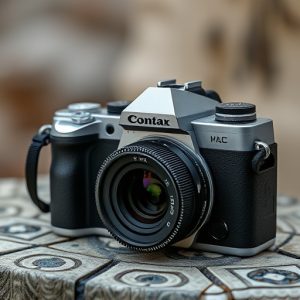Body Camera Legislation: Navigating Laws and Best Practices for Implementation
Law enforcement agencies must navigate a complex legal framework when adopting body cameras for sal…….
Law enforcement agencies must navigate a complex legal framework when adopting body cameras for sale, as regulations vary by jurisdiction, governing privacy rights, data retention, and public disclosure. To operate within these legal parameters and avoid potential legal issues, it's crucial for agencies to select body camera systems that are compliant with current legislative standards, including automated data policies, user interface guidelines, and strong encryption. The dynamic nature of privacy and surveillance laws necessitates ongoing vigilance by agencies to stay aligned with changes influenced by technological advancements. Ethical deployment of body cameras is a priority to maintain transparency and accountability without infringing on individual privacy or misusing the technology. Legal expertise should guide the procurement process to establish protective protocols that balance individual rights with law enforcement needs, aiming to provide an objective record that bolsters public confidence and upholds justice systems' integrity. Agencies must also consider the diverse market of body cameras for sale, tailoring their choice to fit local laws and community needs, ensuring compliance while enhancing transparency and public safety. A strategic approach to the procurement and implementation of body camera technology is essential for responsible and effective operation within the legal landscape of law enforcement.
Body camera legislation is a dynamic field, with laws evolving as technology advances. This article delves into the intricacies of body camera procurement and usage, particularly addressing the availability of body cameras for sale within the legal landscape. It provides a comprehensive overview of how varying state and local regulations shape body camera policies across the United States, offering insights into best practices for law enforcement to implement these tools effectively while maintaining compliance. Understanding the nuances of this topic is crucial for agencies looking to adopt or expand body camera programs.
Navigating the Legal Framework of Body Camera Use and Procurement: Understanding the Implications of Purchasing Body Cameras for Sale
When considering the procurement and implementation of body cameras, law enforcement agencies must navigate a complex legal landscape. The legislative framework governing body camera use varies by jurisdiction, with different states and countries outlining distinct regulations regarding privacy rights, data retention, access, and public disclosure. Agencies looking to purchase body cameras for sale must ensure compliance with these laws to avoid legal repercussions that could arise from misuse or improper handling of the recorded footage. The legal considerations are multifaceted, encompassing issues such as the definition of public and private spaces, consent requirements for recording, and protocols for data storage and deletion. Additionally, agencies must stay abreast of changes in legislation, as laws can evolve rapidly in response to technological advancements and societal concerns. When selecting a body camera for sale, it is crucial for agencies to partner with reputable vendors who provide devices equipped with features that align with current legal standards, such as automated data retention policies, clear user interface guidelines, and robust encryption methods. This due diligence not only aids in maintaining the integrity of investigations but also upholds public trust by demonstrating a commitment to ethical surveillance practices. Agencies must prioritize transparency and accountability in their body camera use, ensuring that the technology serves as an objective record rather than a tool for intrusion or abuse. Understanding the nuances of these laws is not just a matter of legal compliance; it is fundamental to maintaining public confidence and upholding the principles of justice and privacy. As such, when procuring body cameras for sale, agencies should engage in thorough analysis and planning, guided by legal expertise, to establish protocols that protect both the rights of individuals and the interests of law enforcement.
Jurisdictional Variations: How State and Local Laws Shape Body Camera Policies Across the U.S.
Across the United States, the adoption and implementation of body camera policies exhibit significant jurisdictional variations. These differences are influenced by a range of factors including state laws, local regulations, and specific community needs. In some regions, law enforcement agencies have embraced the use of body cameras as a standard tool, with clear guidelines dictating when and how these devices should be used. The availability of body camera options for sale contributes to this variability; agencies with access to more advanced or higher-quality cameras often implement more comprehensive policies reflecting their investment. For instance, in states where privacy concerns are paramount, laws might mandate strict protocols for data storage and access, ensuring that recordings are used judiciously and protected from unauthorized use. Conversely, in other areas with less stringent regulations, the use of body cameras may be more widespread but with fewer safeguards regarding data management, leading to differing levels of public trust and accountability.
The patchwork nature of these policies underscores the importance of understanding the specific legal context within which each law enforcement agency operates. Some states have enacted comprehensive statutes that provide a framework for body camera usage, while others leave it to local governments to establish their own protocols. This results in a landscape where best practices can vary significantly from one jurisdiction to another. Body camera for sale options are diverse, catering to different needs and budgets, which further influences the policies implemented by agencies. As such, it is crucial for potential purchasers to consider how a particular body camera model aligns with their state and local laws, ensuring that their use of this technology remains compliant and effective in fostering transparency and public safety.
Best Practices for Implementing Body Camera Programs in Law Enforcement: A Guide to Compliance and Effective Use
Law enforcement agencies considering the implementation of body camera programs must navigate a complex landscape of legal, ethical, and operational considerations. To ensure compliance with both state and federal laws while maximizing the effectiveness of the program, it is imperative to establish clear policies that govern the use of body cameras. These policies should address data storage, privacy rights, consent protocols, and the circumstances under which footage can be accessed and reviewed. Body cameras for sale must be equipped with technology capable of capturing high-quality footage, offering clear visuals that serve as accurate records of interactions between law enforcement officers and members of the public. Training is a critical component in the effective deployment of body cameras; officers should receive comprehensive instruction on when to activate cameras, how to manage data, and the legal implications of captured footage. Additionally, transparency and accountability are enhanced when agencies clearly communicate their policies to the communities they serve, fostering trust and understanding of the role these tools play in modern policing. Agencies should also stay abreast of technological advancements, as body cameras for sale are continually improving with features such as real-time streaming, automatic activation, and advanced data encryption to safeguard sensitive recordings. By adhering to best practices, law enforcement can leverage body camera technology to uphold the integrity of their operations, maintain public trust, and fulfill their duty to serve and protect effectively.


